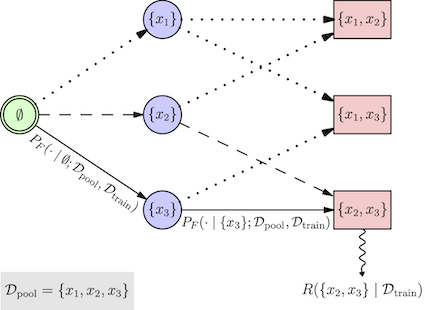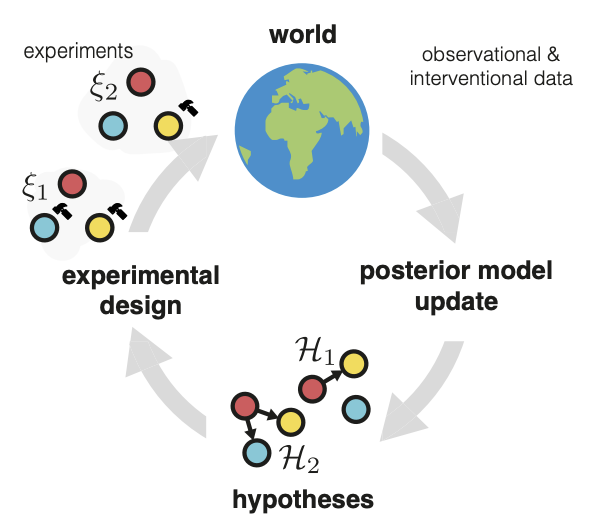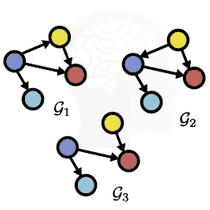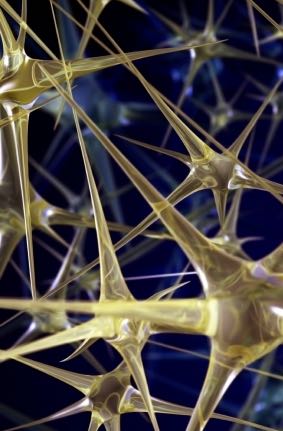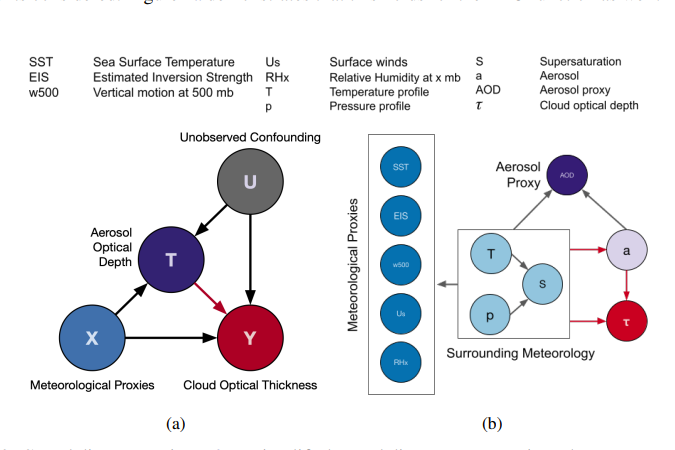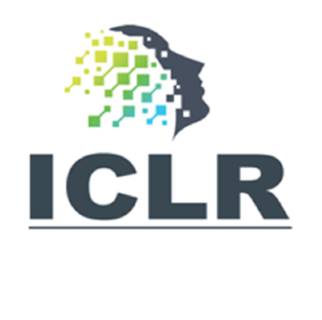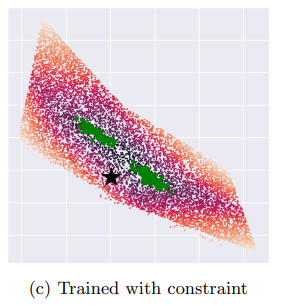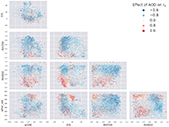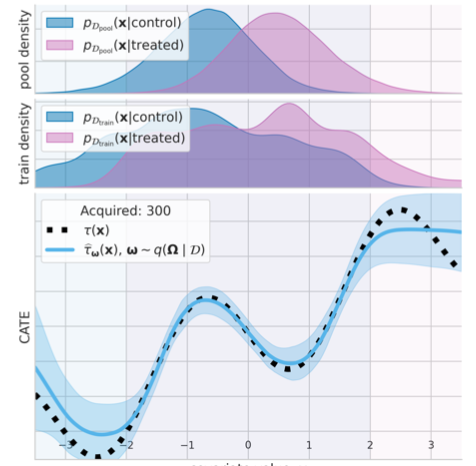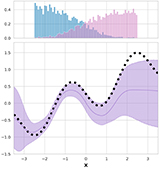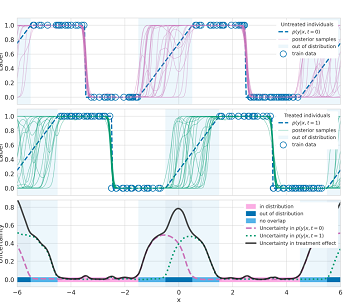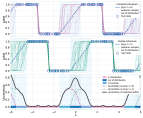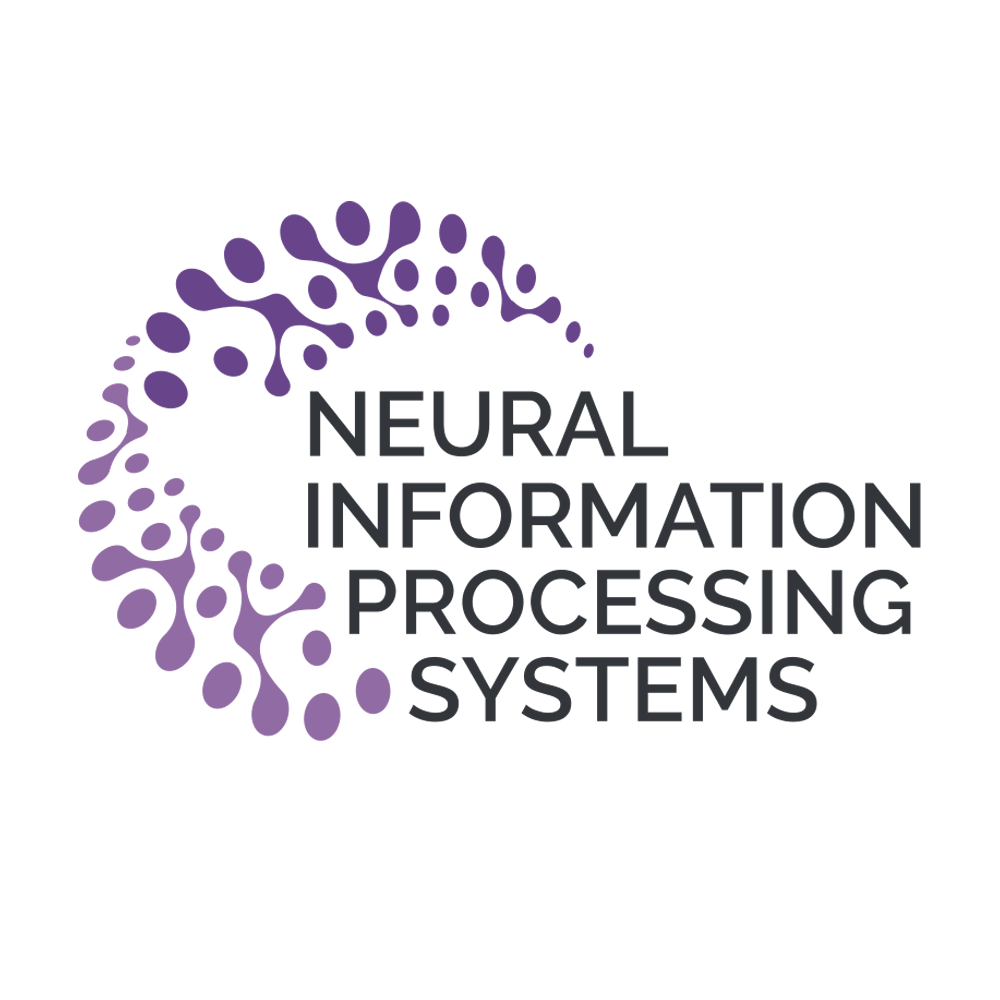Back to all members...
Andrew Jesson
PhD (2019—2024)

Andrew was a Ph.D. student in the Department of Computer Science at the University of Oxford. He works in the Applied and Theoretical Machine Learning Group (OATML) under the supervision of Yarin Gal. Before joining the group, he was a program manager and researcher at Imagia in Montreal. He obtained his undergraduate and master’s degrees from the Department of Electrical and Computer Engineering at McGill University, working in the Probabilistic Vision Group (PVG) under the supervision of Tal Arbel. His research focuses on personalized decision-making under uncertainty in causal-effect estimates. Specifically, he is interested in quantifying, integrating, and reducing the uncertainty that arises from the relaxation of causal assumptions.
Publications while at OATML • News items mentioning Andrew Jesson • Reproducibility and Code • Blog Posts
Publications while at OATML:
BatchGFN: Generative Flow Networks for Batch Active Learning
We introduce BatchGFN---a novel approach for pool-based active learning that uses generative flow networks to sample sets of data points proportional to a batch reward. With an appropriate reward function to quantify the utility of acquiring a batch, such as the joint mutual information between the batch and the model parameters, BatchGFN is able to construct highly informative batches for active learning in a principled way. We show our approach enables sampling near-optimal utility batches at inference time with a single forward pass per point in the batch in toy regression problems. This alleviates the computational complexity of batch-aware algorithms and removes the need for greedy approximations to find maximizers for the batch reward. We also present early results for amortizing training across acquisition steps, which will enable scaling to real-world tasks.
Shreshth Malik, Salem Lahlou, Andrew Jesson, Moksh Jain, Nikolay Malkin, Tristan Deleu, Yoshua Bengio, Yarin Gal
Structured Probabilistic Inference & Generative Modeling workshop, ICML 2023
[paper]
B-Learner: Quasi-Oracle Bounds on Heterogeneous Causal Effects Under Hidden Confounding
Estimating heterogeneous treatment effects from observational data is a crucial task across many fields, helping policy and decision-makers take better actions. There has been recent progress on robust and efficient methods for estimating the conditional average treatment effect (CATE) function, but these methods often do not take into account the risk of hidden confounding, which could arbitrarily and unknowingly bias any causal estimate based on observational data. We propose a meta-learner called the B-Learner, which can efficiently learn sharp bounds on the CATE function under limits on the level of hidden confounding. We derive the B-Learner by adapting recent results for sharp and valid bounds of the average treatment effect (Dorn et al., 2021) into the framework given by Kallus & Oprescu (2022) for robust and model-agnostic learning of distributional treatment effects. The B-Learner can use any function estimator such as random forests and deep neural networks, and we prove ... [full abstract]
Miruna Oprescu, Jacob Dorn, Marah Ghoummaid, Andrew Jesson, Nathan Kallus, Uri Shalit
ICML 2023
[arXiv]
DiscoBAX - Discovery of optimal intervention sets in genomic experiment design
The discovery of novel therapeutics to cure genetic pathologies relies on the identification of the different genes involved in the underlying disease mechanism. With billions of potential hypotheses to test, an exhaustive exploration of the entire space of potential interventions is impossible in practice. Sample-efficient methods based on active learning or bayesian optimization bear the promise of identifying interesting targets using the least experiments possible. However, genomic perturbation experiments typically rely on proxy outcomes measured in biological model systems that may not completely correlate with the outcome of interventions in humans. In practical experiment design, one aims to find a set of interventions which maximally move a target phenotype via a diverse set of mechanisms in order to reduce the risk of failure in future stages of trials. To that end, we introduce DiscoBAX — a sample-efficient algorithm for the discovery of genetic interventions that maxim... [full abstract]
Clare Lyle, Arash Mehrjou, Pascal Notin, Andrew Jesson, Stefan Bauer, Yarin Gal, Patrick Schwab
ICML 2023
[arXiv]
Differentiable Multi-Target Causal Bayesian Experimental Design
We introduce a gradient-based approach for the problem of Bayesian optimal experimental design to learn causal models in a batch setting --- a critical component for causal discovery from finite data where interventions can be costly or risky. Existing methods rely on greedy approximations to construct a batch of experiments while using black-box methods to optimize over a single target-state pair to intervene with. In this work, we completely dispose of the black-box optimization techniques and greedy heuristics and instead propose a conceptually simple end-to-end gradient-based optimization procedure to acquire a set of optimal intervention target-value pairs. Such a procedure enables parameterization of the design space to efficiently optimize over a batch of multi-target-state interventions, a setting which has hitherto not been explored due to its complexity. We demonstrate that our proposed method outperforms baselines and existing acquisition strategies in both single-target... [full abstract]
Panagiotis Tigas, Yashas Annadani, Desi R. Ivanova, Andrew Jesson, Yarin Gal, Adam Foster, Stefan Bauer
ICML, 2023
Machine Learning for Drug Discovery Workshop (spotlight), ICLR 2023
Differentiable Multi-Target Causal Bayesian Experimental Design, ICML 2023
[arXiv] [BibTex]
Interventions, Where and How? Experimental Design for Causal Models at Scale
Causal discovery from observational and interventional data is challenging due to limited data and non-identifiability: factors that introduce uncertainty in estimating the underlying structural causal model (SCM). Selecting experiments (interventions) based on the uncertainty arising from both factors can expedite the identification of the SCM. Existing methods in experimental design for causal discovery from limited data either rely on linear assumptions for the SCM or select only the intervention target. This work incorporates recent advances in Bayesian causal discovery into the Bayesian optimal experimental design framework, allowing for active causal discovery of large, nonlinear SCMs while selecting both the interventional target and the value. We demonstrate the performance of the proposed method on synthetic graphs (Erdos-Rènyi, Scale Free) for both linear and nonlinear SCMs as well as on the in-silico single-cell gene regulatory network dataset, DREAM.
Panagiotis Tigas, Yashas Annadani, Andrew Jesson, Bernhard Schölkopf, Yarin Gal, Stefan Bauer
NeurIPS, 2022
Adaptive Experimental Design and Active Learning in the Real World, NeurIPS 2022
[arXiv] [BibTex]
Stochastic Batch Acquisition for Deep Active Learning
We provide a stochastic strategy for adapting well-known acquisition functions to allow batch active learning. In deep active learning, labels are often acquired in batches for efficiency. However, many acquisition functions are designed for single-sample acquisition and fail when naively used to construct batches. In contrast, state-of-the-art batch acquisition functions are costly to compute. We show how to extend single-sample acquisition functions to the batch setting. Instead of acquiring the top-K points from the pool set, we account for the fact that acquisition scores are expected to change as new points are acquired. This motivates simple stochastic acquisition strategies using score-based or rank-based distributions. Our strategies outperform the standard top-K acquisition with virtually no computational overhead and can be used as a drop-in replacement. In fact, they are even competitive with much more expensive methods despite their linear computational complexity. We c... [full abstract]
Andreas Kirsch, Sebastian Farquhar, Parmida Atighehchian, Andrew Jesson, Frederic Branchaud-Charron, Yarin Gal
ArXiv
[paper]
Scalable Sensitivity and Uncertainty Analysis for Causal-Effect Estimates of Continuous-Valued Interventions
Estimating the effects of continuous-valued interventions from observational data is a critically important task for climate science, healthcare, and economics. Recent work focuses on designing neural network architectures and regularization functions to allow for scalable estimation of average and individual-level dose-response curves from high-dimensional, large-sample data. Such methodologies assume ignorability (observation of all confounding variables) and positivity (observation of all treatment levels for every covariate value describing a set of units), assumptions problematic in the continuous treatment regime. Scalable sensitivity and uncertainty analyses to understand the ignorance induced in causal estimates when these assumptions are relaxed are less studied. Here, we develop a continuous treatment-effect marginal sensitivity model (CMSM) and derive bounds that agree with the observed data and a researcher-defined level of hidden confounding. We introduce a scalable al... [full abstract]
Andrew Jesson, Alyson Douglas, Peter Manschausen, Nicolai Meinschausen, Philip Stier, Yarin Gal, Uri Shalit
NeurIPS 2022
[paper]
GeneDisco: A Benchmark for Experimental Design in Drug Discovery
In vitro cellular experimentation with genetic interventions, using for example CRISPR technologies, is an essential step in early-stage drug discovery and target validation that serves to assess initial hypotheses about causal associations between biological mechanisms and disease pathologies. With billions of potential hypotheses to test, the experimental design space for in vitro genetic experiments is extremely vast, and the available experimental capacity - even at the largest research institutions in the world - pales in relation to the size of this biological hypothesis space. Machine learning methods, such as active and reinforcement learning, could aid in optimally exploring the vast biological space by integrating prior knowledge from various information sources as well as extrapolating to yet unexplored areas of the experimental design space based on available data. However, there exist no standardised benchmarks and data sets for this challenging task and little researc... [full abstract]
Arash Mehrjou, Ashkan Soleymani, Andrew Jesson, Pascal Notin, Yarin Gal, Stefan Bauer, Patrick Schwab
International Conference on Learning Representations, 2022
[Preprint] [BibTex] [Code]
On Feature Collapse and Deep Kernel Learning for Single Forward Pass Uncertainty
Inducing point Gaussian process approximations are often considered a gold standard in uncertainty estimation since they retain many of the properties of the exact GP and scale to large datasets. A major drawback is that they have difficulty scaling to high dimensional inputs. Deep Kernel Learning (DKL) promises a solution: a deep feature extractor transforms the inputs over which an inducing point Gaussian process is defined. However, DKL has been shown to provide unreliable uncertainty estimates in practice. We study why, and show that with no constraints, the DKL objective pushes "far-away" data points to be mapped to the same features as those of training-set points. With this insight we propose to constrain DKL's feature extractor to approximately preserve distances through a bi-Lipschitz constraint, resulting in a feature space favorable to DKL. We obtain a model, DUE, which demonstrates uncertainty quality outperforming previous DKL and other single forward pass uncertainty ... [full abstract]
Joost van Amersfoort, Lewis Smith, Andrew Jesson, Oscar Key, Yarin Gal
arXiv (2022)
[Paper]
Using Non-Linear Causal Models to Study Aerosol-Cloud Interactions in the Southeast Pacific
Aerosol-cloud interactions include a myriad of effects that all begin when aerosol enters a cloud and acts as cloud condensation nuclei (CCN). An increase in CCN results in a decrease in the mean cloud droplet size (r$_{e}$). The smaller droplet size leads to brighter, more expansive, and longer lasting clouds that reflect more incoming sunlight, thus cooling the earth. Globally, aerosol-cloud interactions cool the Earth, however the strength of the effect is heterogeneous over different meteorological regimes. Understanding how aerosol-cloud interactions evolve as a function of the local environment can help us better understand sources of error in our Earth system models, which currently fail to reproduce the observed relationships. In this work we use recent non-linear, causal machine learning methods to study the heterogeneous effects of aerosols on cloud droplet radius.
Andrew Jesson, Peter Manshausen, Alyson Douglas, Duncan Watson-Parris, Yarin Gal, Philip Stier
Workshops on Tackling Climate Change with Machine Learning, and Causal Inference & Machine Learning: Why now?, NeurIPS 2021
[Paper]
Causal-BALD: Deep Bayesian Active Learning of Outcomes to Infer Treatment-Effects
Estimating personalized treatment effects from high-dimensional observational data is essential in situations where experimental designs are infeasible, unethical or expensive. Existing approaches rely on fitting deep models on outcomes observed for treated and control populations, but when measuring the outcome for an individual is costly (e.g. biopsy) a sample efficient strategy for acquiring outcomes is required. Deep Bayesian active learning provides a framework for efficient data acquisition by selecting points with high uncertainty. However, naive application of existing methods selects training data that is biased toward regions where the treatment effect cannot be identified because there is non-overlapping support between the treated and control populations. To maximize sample efficiency for learning personalized treatment effects, we introduce new acquisition functions grounded in information theory that bias data acquisition towards regions where overlap is satisfied, by... [full abstract]
Andrew Jesson, Panagiotis Tigas, Joost van Amersfoort, Andreas Kirsch, Uri Shalit, Yarin Gal
NeurIPS, 2021
[Paper]
Quantifying Ignorance in Individual-Level Causal-Effect Estimates under Hidden Confounding
We study the problem of learning conditional average treatment effects (CATE) from high-dimensional, observational data with unobserved confounders. Unobserved confounders introduce ignorance -- a level of unidentifiability -- about an individual's response to treatment by inducing bias in CATE estimates. We present a new parametric interval estimator suited for high-dimensional data, that estimates a range of possible CATE values when given a predefined bound on the level of hidden confounding. Further, previous interval estimators do not account for ignorance about the CATE stemming from samples that may be underrepresented in the original study, or samples that violate the overlap assumption. Our novel interval estimator also incorporates model uncertainty so that practitioners can be made aware of out-of-distribution data. We prove that our estimator converges to tight bounds on CATE when there may be unobserved confounding, and assess it using semi-synthetic, high-dimensional ... [full abstract]
Andrew Jesson, Sören Mindermann, Yarin Gal, Uri Shalit
ICML, 2021
[arXiv]
Identifying Causal-Effect Inference Failure with Uncertainty-Aware Models
Recommending the best course of action for an individual is a major application of individual-level causal effect estimation. This application is often needed in safety-critical domains such as healthcare, where estimating and communicating uncertainty to decision-makers is crucial. We introduce a practical approach for integrating uncertainty estimation into a class of state-of-the-art neural network methods used for individual-level causal estimates. We show that our methods enable us to deal gracefully with situations of "no-overlap", common in high-dimensional data, where standard applications of causal effect approaches fail. Further, our methods allow us to handle covariate shift, where the train and test distributions differ, common when systems are deployed in practice. We show that when such a covariate shift occurs, correctly modeling uncertainty can keep us from giving overconfident and potentially harmful recommendations. We demonstrate our methodology with a range of s... [full abstract]
Andrew Jesson, Sören Mindermann, Uri Shalit, Yarin Gal
NeurIPS 2020
[paper]
Identifying Causal Effect Inference Failure with Uncertainty-Aware Models
Recommending the best course of action for an individual is a major application of individual-level causal effect estimation. This application is often needed in safety-critical domains such as healthcare, where estimating and communicating uncertainty to decision-makers is crucial. We introduce a practical approach for integrating uncertainty estimation into a class of state-of-the-art neural network methods used for individual-level causal estimates. We show that our methods enable us to deal gracefully with situations of "no-overlap", common in high-dimensional data, where standard applications of causal effect approaches fail. Further, our methods allow us to handle covariate shift, where test distribution differs to train distribution, common when systems are deployed in practice. We show that when such a covariate shift occurs, correctly modeling uncertainty can keep us from giving overconfident and potentially harmful recommendations. We demonstrate our methodology with a ra... [full abstract]
Andrew Jesson, Sören Mindermann, Uri Shalit, Yarin Gal
NeurIPS, 2020
[arXiv] [BibTex]
News items mentioning Andrew Jesson:
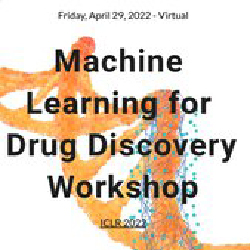
OATML to co-organize the Machine Learning for Drug Discovery (MLDD) workshop at ICLR 2023
21 Dec 2022
OATML students Pascal Notin and Clare Lyle, along with OATML group leader Yarin Gal, are co-organizing the Machine Learning for Drug Discovery (MLDD) workshop at ICLR 2023 jointly with collaborators at GSK, Genentech, Harvard, MIT and others. OATML students Neil Band, Freddie Bickford Smith, Jan Brauner, Lars Holdijk, Andrew Jesson, Andreas Kirsch, Shreshth Malik, Lood van Niekirk and Ruben Wietzman are part of the program committee.
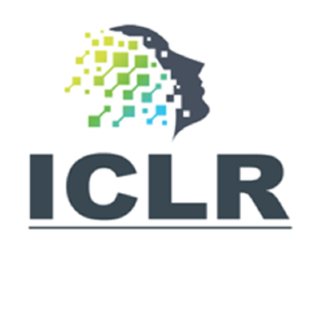

OATML to co-organize the Machine Learning for Drug Discovery (MLDD) workshop at ICLR 2022
15 Jan 2022
OATML students Pascal Notin, Andrew Jesson and Clare Lyle, along with OATML group leader Professor Yarin Gal, are co-organizing the first Machine Learning for Drug Discovery (MLDD) workshop at ICLR 2022 jointly with collaborators at GSK, Harvard, MILA, MIT and others. OATML students Neil Band, Freddie Bickford Smith, Jan Brauner, Lars Holdijk, Andreas Kirsch, Jannik Kossen and Muhammed Razzak are part of the PC.
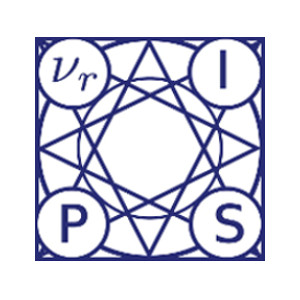
NeurIPS 2021
11 Oct 2021
Thirteen papers with OATML members accepted to NeurIPS 2021 main conference. More information in our blog post.

ICML 2021
17 Jul 2021
Seven papers with OATML members accepted to ICML 2021, together with 14 workshop papers. More information in our blog post.
Blog Posts
OATML Conference papers at NeurIPS 2022
OATML group members and collaborators are proud to present 8 papers at NeurIPS 2022 main conference, and 11 workshop papers. …
Full post...Yarin Gal, Freddie Kalaitzis, Shreshth Malik, Lorenz Kuhn, Gunshi Gupta, Jannik Kossen, Pascal Notin, Andrew Jesson, Panagiotis Tigas, Tim G. J. Rudner, Sebastian Farquhar, Ilia Shumailov, 25 Nov 2022
OATML at ICML 2022
OATML group members and collaborators are proud to present 11 papers at the ICML 2022 main conference and workshops. Group members are also co-organizing the Workshop on Computational Biology, and the Oxford Wom*n Social. …
Full post...Sören Mindermann, Jan Brauner, Muhammed Razzak, Andreas Kirsch, Aidan Gomez, Sebastian Farquhar, Pascal Notin, Tim G. J. Rudner, Freddie Bickford Smith, Neil Band, Panagiotis Tigas, Andrew Jesson, Lars Holdijk, Joost van Amersfoort, Kelsey Doerksen, Jannik Kossen, Yarin Gal, 17 Jul 2022
OATML at ICLR 2022
OATML group members and collaborators are proud to present 4 papers at ICLR 2022 main conference. …
Full post...Yarin Gal, Tuan Nguyen, Andrew Jesson, Pascal Notin, Atılım Güneş Baydin, Clare Lyle, Milad Alizadeh, Joost van Amersfoort, Sebastian Farquhar, Muhammed Razzak, Freddie Kalaitzis, 01 Feb 2022
13 OATML Conference papers at NeurIPS 2021
OATML group members and collaborators are proud to present 13 papers at NeurIPS 2021 main conference. …
Full post...Jannik Kossen, Neil Band, Aidan Gomez, Clare Lyle, Tim G. J. Rudner, Yarin Gal, Binxin (Robin) Ru, Clare Lyle, Lisa Schut, Atılım Güneş Baydin, Tim G. J. Rudner, Andrew Jesson, Panagiotis Tigas, Joost van Amersfoort, Andreas Kirsch, Pascal Notin, Angelos Filos, 11 Oct 2021
21 OATML Conference and Workshop papers at ICML 2021
OATML group members and collaborators are proud to present 21 papers at ICML 2021, including 7 papers at the main conference and 14 papers at various workshops. Group members will also be giving invited talks and participate in panel discussions at the workshops. …
Full post...Angelos Filos, Clare Lyle, Jannik Kossen, Sebastian Farquhar, Tom Rainforth, Andrew Jesson, Sören Mindermann, Tim G. J. Rudner, Oscar Key, Binxin (Robin) Ru, Pascal Notin, Panagiotis Tigas, Andreas Kirsch, Jishnu Mukhoti, Joost van Amersfoort, Lisa Schut, Muhammed Razzak, Aidan Gomez, Jan Brauner, Yarin Gal, 17 Jul 2021
When causal inference fails - detecting violated assumptions with uncertainty-aware models
NeurIPS 2020. Tl;dr: Uncertainty-aware deep models can identify when some causal-effect inference assumptions are violated. …
Full post...Andrew Jesson, Sören Mindermann, Uri Shalit, Yarin Gal, 08 Dec 2020
22 OATML Conference and Workshop papers at NeurIPS 2020
OATML group members and collaborators are proud to be presenting 22 papers at NeurIPS 2020. Group members are also co-organising various events around NeurIPS, including workshops, the NeurIPS Meet-Up on Bayesian Deep Learning and socials. …
Full post...Muhammed Razzak, Panagiotis Tigas, Angelos Filos, Atılım Güneş Baydin, Andrew Jesson, Andreas Kirsch, Clare Lyle, Freddie Kalaitzis, Jan Brauner, Jishnu Mukhoti, Lewis Smith, Lisa Schut, Mizu Nishikawa-Toomey, Oscar Key, Binxin (Robin) Ru, Sebastian Farquhar, Sören Mindermann, Tim G. J. Rudner, Yarin Gal, 04 Dec 2020

